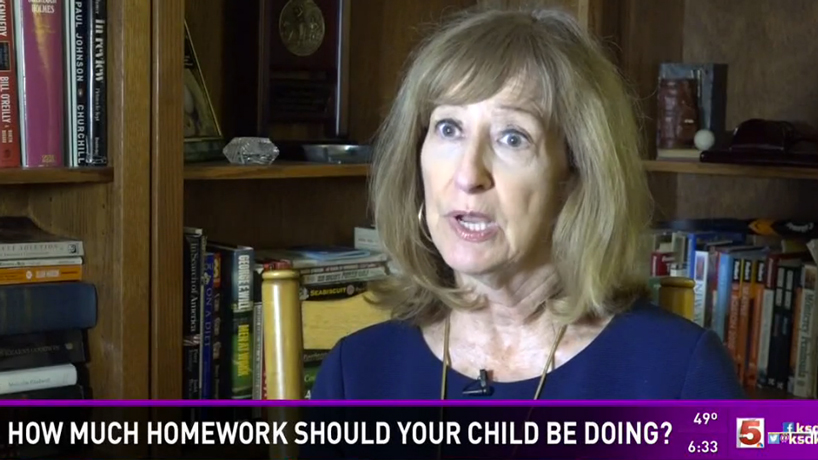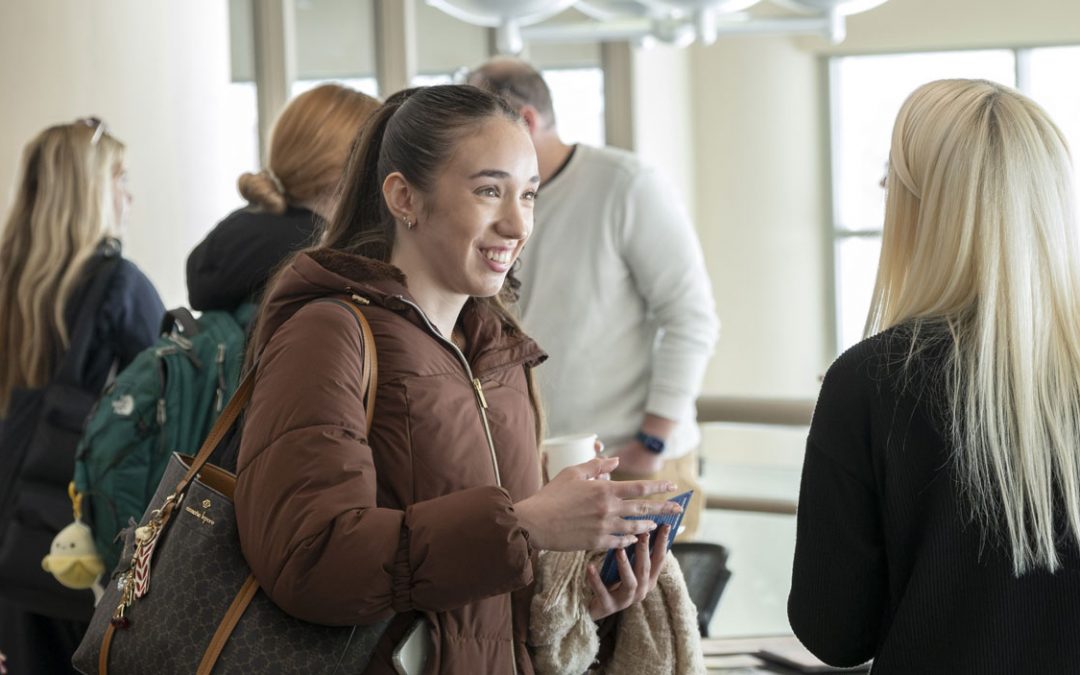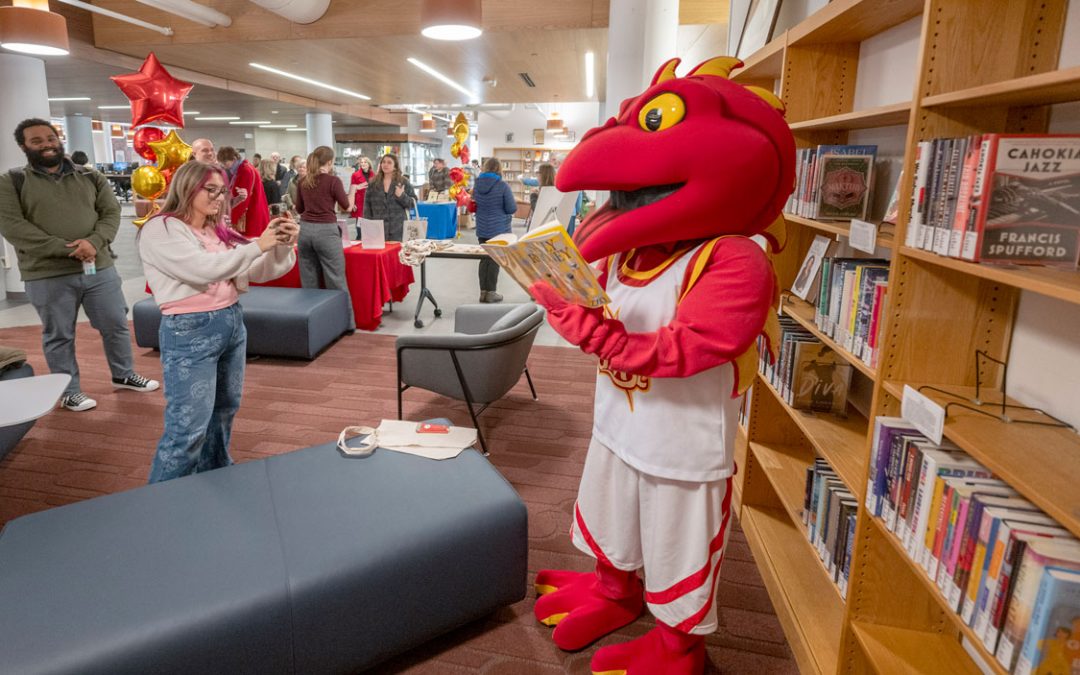
Education Professor Cathy Vatterott sat down with Channel 5’s Ryan Dean to discuss homework concerns. A “rethinking about what we give and the amount we give” is definitely underway, said Vatterott.
How much homework are children bringing home each night? And how much is too much?
KSDK’s Ryan Dean, along with the network’s popular “Five on Your Side” team, recently took to Facebook to gather more information about these sometimes stress-inducing questions. They then turned to University of Missouri–St. Louis education Professor Cathy Vatterott for answers and solutions.
Vatterott, aka the “Homework Lady,” is a national expert whose most recent of four books, “Rethinking Homework: Best Practices That Support Diverse Needs,” tackles this exact subject. Her plethora of expertise comes in part from her years as a middle school teacher and principal, but it also stems from her time as a parent.
Vatterott told KSDK (Channel 5) that watching her son struggle – back when he was a fifth grader who was also grappling with learning disabilities – really drove her toward the work she’s now known for.
“The homework was coming home and I was going, ‘What? Why are we doing this?’”
Now, Vatterott travels the country speaking to and working with both educators and parents to help them navigate, challenge and rethink old standards, like the still sometimes familiar concept that more homework equals more or better learning.
“We’re trying to combat attitudes of parents and teachers,” she explained. “That ‘well my kid goes to a really good school; they have four hours of homework’ when what we’re finding at the high school level is that after two hours, achievement actually starts to go down. It’s too much. They’re worn out.”
Vatterott said there are some techniques on the horizon that aim to change such homework woes. She mentioned her work with a school in Massachusetts as just one hopeful example.
The school is piloting a new program geared toward individualized assignments, a method that still builds fundamental skills like reading and writing but does so by allowing kids to explore their own interests.
“I never had a problem with my son when he was doing homework that he was interested in,” Vatterott said, “but when they sent home those deadly worksheets, or those drill sheets, that was pulling hair.”
For more with Vatterott, including information about another homework game-changer known as the “flipped classroom approach,” please see KSDK’s video footage and full story.















